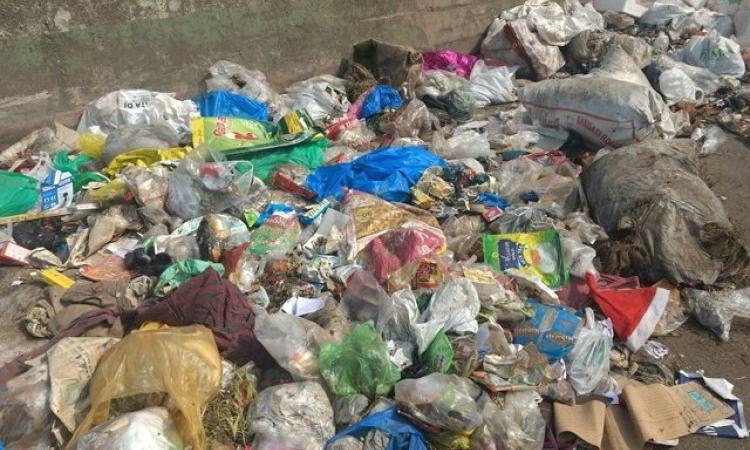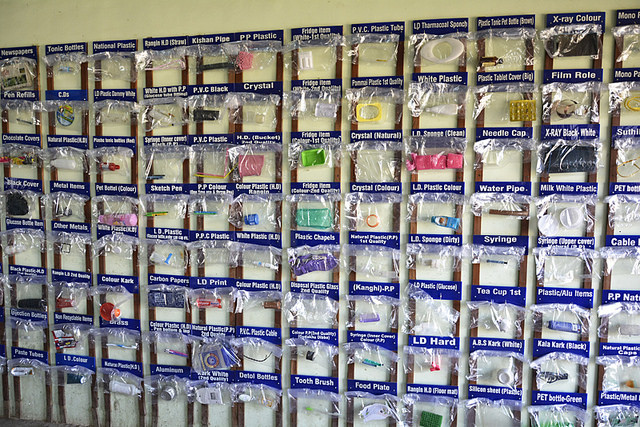
The recent plastic ban in Maharashtra has opened a can of worms and has raised many uncomfortable questions—about the setting of rules with clarity and foresight, better research to understand the challenges in implementing them and the role of citizens in making it a success.
There needs no debate to conclude that there is an urgent need to control plastic waste in Maharashtra. According to a recent Central Pollution Control Board report, the total plastic waste that the state generates is as high as 4,69,098 tonnes making it one of the top contributors of plastic waste in the country.
What did this ban have to offer?
Maharashtra state cabinet passed a decision to ban single-use plastics on March 15, 2018, and its enforcement started on June 23, 2018. A notification was passed on March 23, 2018, which was revised multiple times over the course of three months. This is not the first time that a ban has been implemented and none of the earlier efforts has been successful.
Events that unfurled following the ban
According to newspaper reports, the enforcement of the ban led to a fine collection of Rs 2.95 lakhs from Mumbai and Rs 3.6 lakhs from Nasik and Pune in the first three days of the ban! By day two, restaurants, retailers and unorganised markets reported lowering of sales due to lack of appropriate alternatives to plastic. Sanjay, a shopkeeper in Pune says, “We were worried and confused following the blanket ban as we needed plastic bags to store and transport food grains and other stuff. Many traders resisted this move.” The ban was also reported to have adversely impacted app-based food delivery units in Mumbai and caused a huge loss of business to a large number of stores across Maharashtra.
Commercial bodies such as the Plastic Bags Manufacturers Association of India and Maharashtra Chamber of Commerce and Industry (MACCIA) expressed fear that the ban risked a loss of Rs 15,000 crore, leaving nearly three lakh people jobless overnight. According to newspaper reports, traders in Mumbai, Nasik and Pune warned of an agitation demanding that the government should first come out with alternatives to plastic instead of just enforcing a ban.
Following pressure from the industry, the Maharashtra government relaxed the stringent ban by allowing small retailers to use plastic bags above 50 microns thickness for packaging for the next three months provided they come up with a recycling plan. The latest amendment in the notification exempts the use of plastic packaging of medical equipment and drugs while allowing plastic thicker than 50 microns to be used for wrapping if it has 20 percent recyclable material with manufacturer’s details and buyback price printed on it.
E-commerce companies can use plastic packaging for three more months provided they come up with a buyback plan to collect used plastic packaging material, ensure its recycling and disposal as well as source alternative packaging. The state government has also announced a buyback scheme for PET bottles and plastic milk pouches and has placed the onus of the scheme on manufacturers. According to newspaper reports, nothing, however, seems to have progressed as of now in terms of buyback mechanisms as manufacturers have resisted claiming the proposal to be impracticable.
In the midst of this back and forth by the government on regulations related to the ban, a lot of confusion prevailed and the initial enthusiasm seemed to have lost steam.

Poor planning and communication led to confusion
Environmentalists have welcomed the move but many express concerns about the way the ban was implemented. Shailaja Deshpande, director of Jeevitnadi, an NGO in Pune says, “ It seems like no planning and research went into the actual implementation of the ban. It should have been done systematically, in phases, starting with plastic bags and gradually moving on to other kinds of plastic items. Also, the dialogue and communication with manufacturers and users were crucial for it to succeed.” She believes that it was important to make people aware of the kinds of items banned and what to do with the plastic waste. “No attempt was made to involve citizens or the NGOs who have been working on the issue in the implementation process. Even the staff working at the ground level like waste collectors did not have clarity about what had to be done and could have been trained properly,” she says.
Smitha Naik, an environmental activist from Ecological Society, Pune, however, sounds hopeful when she says that though a lot of questions remain unanswered and a lot more needed to be done, she could see more discussion on the issue now than before. She says, “We noticed that things really changed since the ban and responses from citizens have been overwhelming; so many people have started using cloth bags. But there were problems with the clarity of regulations and that raised genuine concerns among the affected, be it shopkeepers or industries as they did not have any alternatives.”
Lolita Gupta from Ecoexist, a social enterprise that works with groups of women to provide cloth bags as an alternative to plastic bags in Pune says, “There were a number of loopholes in the system which made the implementation ineffective. For example, when the ban was announced, people started using non-woven bags instead of plastic bags, which are not biodegradable. Better awareness could have helped. Same has been the problem with retailers who did not know of any alternatives to plastic. We need to give it some time, wait for the market to react, see what alternatives people come up with. More preparation before implementing the ban was needed.”
'Ban to pick up the pace soon'
Monica Walunjkar, an official at the Pune Municipal Corporation (PMC) agrees that there has been some slowing down of the efforts since the three-month relaxation. She lists a slew of measures the PMC is taking to get that back on track. “We have started involving sanitary inspectors in PMC establishments to collect and segregate plastic waste. We plan to continue with our awareness generation activities through banners and the use of social media,” she says. Apart from that, they are inviting NGOs to participate in their awareness efforts at the ward level in the city. They have asked commercial units in Pune to submit their recycling plans over the next three months. They will give away awards on August 15 to shopkeepers who have refrained from using plastic bags to encourage them to stick to the practice.
The NGOs and researchers believe that the ban document did not take into consideration the huge informal system of recycling in the state and can only succeed if it integrates them in its planning. Implementation of waste management rules that look at citizen responsibility to segregate waste at the source is also important.
Retired senior scientist, Dr Pramod Moghe from the National Chemical Laboratory, Pune says that the ban lost its seriousness as alternatives were not thought through at the right time. “Plastic can be used in making roads, pavements and bricks for construction. We can use bioplastics that use natural starch as biodegradable alternatives for items like milk bags. Technologies to generate energy from plastics, incinerate plastic without harmful by-products or recycle plastics using mechanical or chemical processes are available. I wonder why were they not looked into before as a solution?” he says. Plastic waste can also be used to decontaminate water and make useful products.
Blanket ban, not a good idea

Mahesh Kumbhojkar, a plastic bag manufacturer from Pune says that the ban was a major setback for the plastic industry in Maharashtra. He believes a blanket ban was unnecessary since many types of plastic products are used for various purposes. “It should have been done step by step giving enough time for the industry to prepare itself. They could have started with plastic carry bags first,” he says.
Plastic is an extremely versatile material. It’s lightweight, waterproof, resilient and relatively cheap. Other options such as jute, cotton paper are expensive and less efficient while we don’t have any alternatives that are as versatile at the moment. He says that rather than banning, the focus should’ve been on how to minimise its use and how to recycle it. ”Segregation at source would work but we need to train people who handle waste on the types and grades of plastic,” he says.
Some merchants like Sanjay seems to have found a way out of this situation. “I do not give plastic bags to people and we have formed GreenGrowth Group, a bank of cloth bags through which we have started a scheme where we hand over cloth bags to people by asking them to keep a deposit of Rs 10. They can return the bag or keep it with them. I do hope everyone starts doing this,” he says.
Is this three-month period enough to find some solutions to plastic waste? Have we missed an opportunity to show how government and citizens could work together to deal with the plastic menace by jumping on the bandwagon without being adequately prepared? Only time will tell.